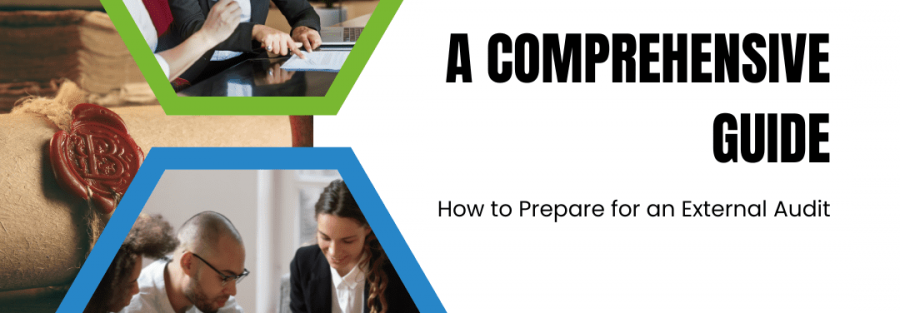How to Prepare for an External Audit: A Comprehensive Guide
An external audit is a crucial process that offers an independent and unbiased evaluation of an organization’s financial records, controls, and regulatory compliance. Proper preparation is key to ensuring a smooth and successful external audit. In this article, we will present a comprehensive guide on effectively preparing for an external audit.
1. Understanding the External Audit Process
Start by acquiring a comprehensive understanding of the external audit process. Familiarize yourself with the objectives, scope, and timelines of the audit. Clarify any questions or concerns with the auditors to ensure a clear understanding of expectations.
2. Reviewing Previous Audit Findings
Review the findings and recommendations from previous external audits. Assess the progress made in addressing any identified issues or weaknesses. Use this review to identify areas for improvement and take necessary actions before the next audit.
3. Organizing Documentation and Records
Gather and organize all relevant financial records, statements, contracts, invoices, receipts, and other supporting documents. Ensure they are properly labeled, indexed, and readily accessible. Consider implementing a digital document management system to streamline document retrieval during the audit.
4. Conducting an Internal Pre-Audit Review
Perform an internal pre-audit review or self-assessment of your financial processes, internal controls, and compliance procedures. Identify potential areas of weakness or non-compliance and take corrective measures. This internal review will help you address any issues proactively.
5. Ensuring Compliance with Regulations
Review the applicable laws, regulations, and accounting standards relevant to your industry. Ensure that your financial practices and reporting are in compliance with these requirements. Keep track of any changes in regulations and adjust your processes accordingly.
6. Training and Communicating with Staff
Educate your employees about the upcoming external audit and their roles during the process. Provide training on the audit objectives, procedures, and expectations. Establish clear lines of communication to address any questions or concerns that may arise.
7. Performing Mock Audits
Conduct mock audits or internal assessments to simulate the external audit process. This will help your team become familiar with the audit procedures and identify any gaps or areas for improvement in your preparations. Use the mock audit findings to refine your processes.
8. Appointing an Audit Liaison
Designate a knowledgeable individual within your organization as the audit liaison. This person will serve as the main point of contact between your team and the external auditors. The audit liaison will coordinate logistics, provide requested information, and address any queries during the audit.
9. Maintaining Open Communication with Auditors
Establish open and transparent communication with the external auditors. Respond promptly to their requests for information and provide them with full access to the necessary documentation. Foster a cooperative relationship that allows for effective collaboration throughout the audit process.
10. Continuous Improvement and Follow-up
Use the findings and recommendations from the external audit to drive continuous improvement within your organization. Implement necessary changes to address any identified issues. Establish a follow-up plan to monitor the progress of corrective actions and ensure their effectiveness. By following these steps, you can effectively prepare for an external audit and increase the chances of a successful outcome. Adequate preparation demonstrates your organization’s commitment to financial transparency, compliance, and accountability. It also helps build trust with stakeholders and provides valuable insights for continuous improvement. Remember, a well-prepared external audit can not only meet regulatory requirements but also offer an opportunity to enhance your financial practices and strengthen your organization’s overall governance.





































